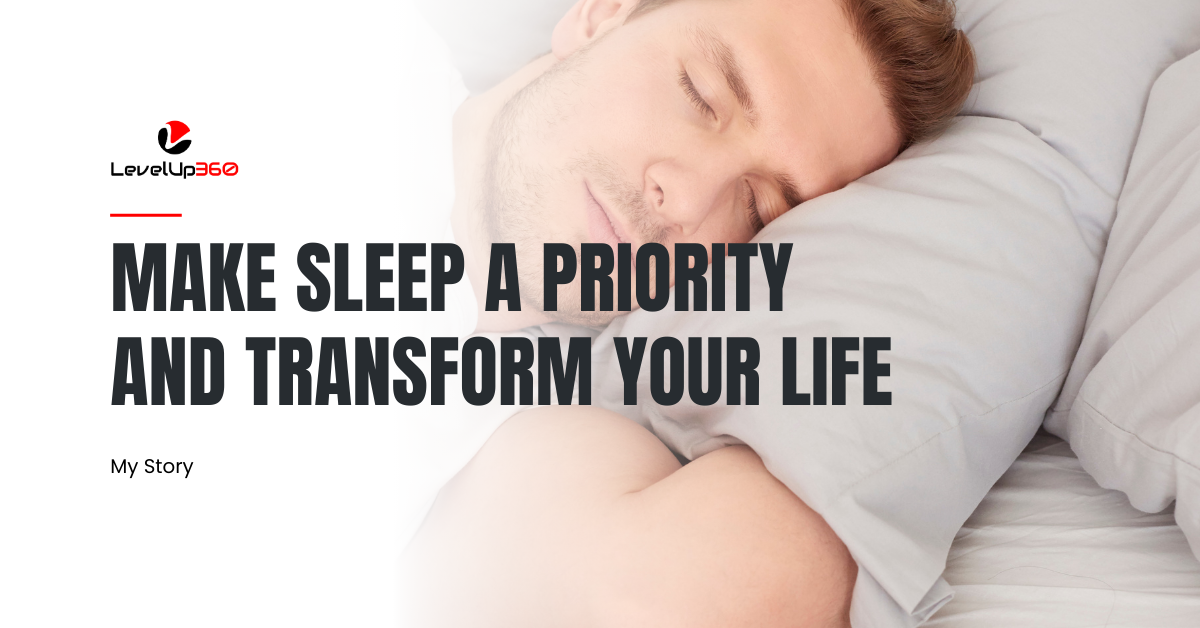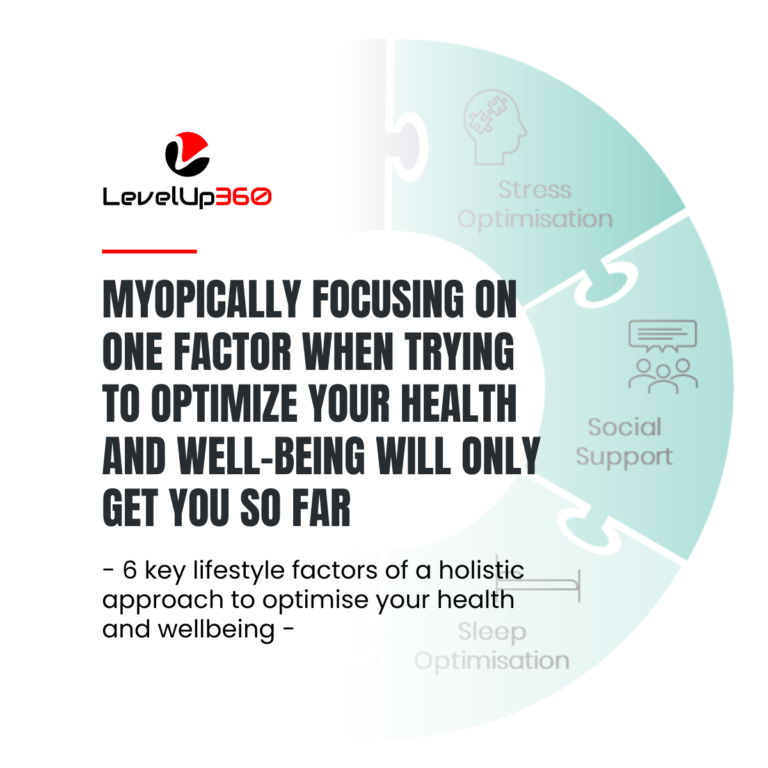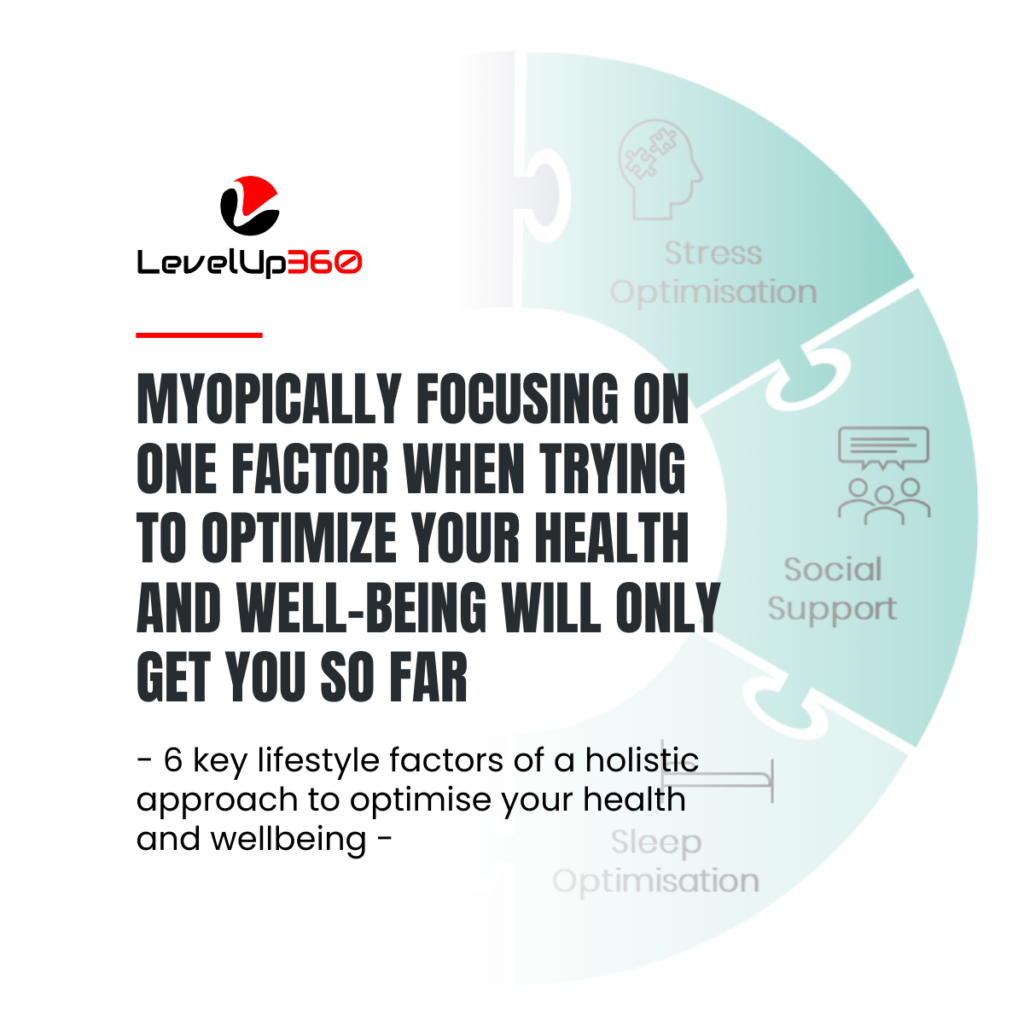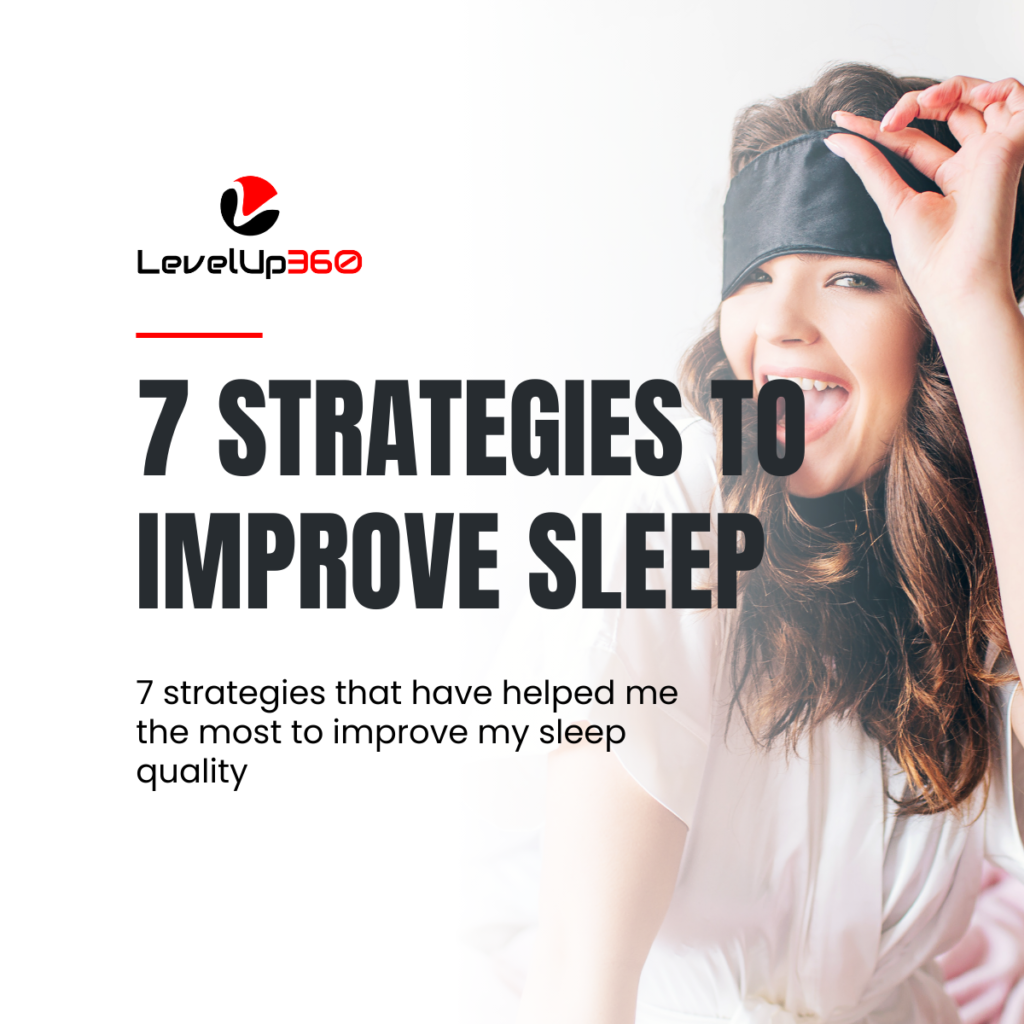
Make Sleep a Priority and Transform Your Life: My Story
Like most people, I took sleep for granted for years. I prided myself on needing just 4-5 hours a night. Sure, I’d feel tired sometimes, but I could power through with enough coffee. I never thought sleep mattered that much. Boy, was I wrong.
In my late 30s, my health started spiralling even though I ate healthy and exercised regularly. I’d drag myself through each day, constantly tired and unmotivated. My mood tanked along with my libido and focus. No matter how much I worked out or nutrient-dense food I ate, I felt awful.
It wasn’t until I hit rock bottom both physically and mentally that I identified the root issue – my sleep habits. I wasn’t prioritising rest, and it was silently destroying my health.
Once I committed to optimising my sleep and getting 7-8 hours nightly, the change was dramatic. I woke up feeling truly refreshed and energized. My mood improved, along with my motivation and sex drive. I could power through tough workouts and concentrate better.
The benefits went way beyond just feeling alert. I was able to maintain a leaner physique year-round and build more muscle with my improved exercise recovery. My productivity soared along with my focus due to better concentration. I became much easier to be around according to my partner, and felt happier overall.
Getting high-quality sleep changed everything in my life. It made me realize how foundational sleep is for health, cognitive performance, and happiness.
In this article, I’ll summarise what I’ve learned after extensively researching sleep science and experimenting on myself over the past few years. My goal is to highlight how critical deep, consistent sleep is for achieving your wellness goals and living up to your full potential. Don’t make the same mistake I did – start optimising your sleep now before it takes a major toll!
Getting high-quality sleep changed everything in my life. It made me realize how foundational sleep is for health, cognitive performance, and happiness.
Sleep Is Essential for Health and Wellbeing
Sleep is absolutely essential for physical and mental health. During sleep, the body repairs itself and consolidates memories. Getting inadequate sleep impairs cognition, emotional regulation, immune function, metabolism and much more. Even one night of poor sleep negatively impacts brain function and information processing. Consistently not getting enough quality sleep leads to an array of health issues like obesity, diabetes, heart disease, anxiety, depression and inflammation.
The recommended amount of sleep for adults is 7-9 hours per night. However, 35% of adults report getting less than 7 hours of sleep, with 10% sleeping less than 6 hours nightly. This sleep deprivation epidemic has severe consequences. For example, sleeping less than 7 hours per night consistently doubles your risk of heart disease. Lack of sleep also impairs immune function. Getting a full night’s rest can improve your ability to fight infection by up to 4 times.
In addition to duration, the timing and regularity of sleep matters tremendously. Just a 70 minute difference in the timing of sleep onset from one night to the next can significantly disrupt recovery in young, healthy individuals. Maintaining a consistent sleep schedule helps anchor the body’s circadian rhythms for optimal function.
Sleep Supports Health Goals
Consistently getting enough high quality sleep is the foundation for successfully achieving any health and wellness goal. Proper sleep allows the body to fully recover and lowers levels of cortisol, the stress hormone. This reduces inflammation, optimises hormones, enables tissue repair and makes it possible to train hard or follow a nutrition plan consistently.
In contrast, lack of sleep leads to increased cortisol, raised inflammation, impaired tissue repair, altered hunger signals and reduced energy. This makes it very difficult to stick to an exercise routine, healthy diet or meditation practice. Sleep deprived individuals experience amplified cravings for high-calorie foods. They also burn less fat overnight when fasting.
Without adequate sleep, attempted lifestyle changes rely mostly on sheer willpower. Sleep deprivation lowers motivation, determination and impulse control. Ensuring you get enough restful sleep minimises the role of willpower. It allows new behaviours and habits to take root since biological drives align with conscious intentions.
Optimising Sleep to Achieve Goals

The first step for anyone looking to accomplish health objectives should be to optimise sleep quality and length. Here are some of the most impactful strategies:
- Maintain a consistent sleep schedule, even on weekends. Consistency anchors circadian rhythms. Make gradual shifts if needed.
- Limit artificial light exposure at night which suppresses melatonin. Use dim, red lights if needed. Avoid screens.
- Get bright blue light exposure first thing in the morning to set your biological clock properly.
- Avoid alcohol before bed. It fragments sleep and suppresses REM sleep needed for mental recovery.
- Finish eating 3 hours before bedtime. Late night meals impair sleep quality.
- Lower the thermostat at bedtime. Cooler core body temperature initiates sleep.
- Make your bedroom cave-like – cool, quiet and pitch black. Use blackout curtains, ear plugs, etc.
- Train yourself to calm your nervous system before bed with meditation, body scanning or hypnosis.
- Avoid naps unless you know they work for you. Keep naps before 3pm and under 25 minutes.
- Limit caffeine to early in the day, tapering consumption in the afternoon.
The "When" of Sleep Matters
Along with duration and quality of sleep, the timing of sleep is extremely important. Each person has an internal biological clock that governs feelings of sleepiness and wakefulness across the 24-hour day. This clock can shift forward or backward based on environmental cues like light exposure, eating times, exercise and temperature. Trying to override your natural preferences will ruin your sleep.
For example, teens undergo a major shift to “night owl” tendencies driven by biological changes during puberty. However, high schools typically force teens to wake up extremely early, depriving them of sleep. This explains why over half of teens report extreme daytime sleepiness. Early school start times contradict their innate circadian biology.
On the other end, many older adults tend to shift towards “morning lark” tendencies yet try forcing themselves to act like night owls to be social. After a certain age, staying up late often leads to worse mood, fatigue and increased injury risk the next day due to working against the body’s preferred rhythms.
Across all ages, chronotype refers to your personal preference for earlier or later sleep timing. To optimise sleep, it’s essential to structure sleep and activity schedules aligned with your innate chronotype. Trying to consistently override it can ruin your sleep quality and health over the long term.
The Link Between Sleep and Overall Health

Consistently getting enough high-quality sleep has benefits that go far beyond just feeling rested and having enough energy to exercise or cook healthy meals. Every system of the body – from metabolism to immunity to cognition – relies on proper sleep. Some of the diverse benefits of consistent, high-quality sleep include:
- Strengthened immune system – enhanced T-cell and antibody production to fight disease
- Lower inflammation – reduced inflammatory cytokines and acute phase reactants
- Improved gut integrity and microbiome diversity – supports healthy digestion and nutritional absorption
- Reduced heart disease risk through lower blood pressure and cholesterol levels
- Normalised appetite hormones like leptin and ghrelin that regulate hunger signals and fat metabolism
- Enhanced insulin sensitivity for balanced blood sugars and diabetes prevention
- Increased motivation and impulse control to maintain healthy lifestyle habits
- Improved mood via balanced neurotransmitters for overall wellbeing
- Enhanced focus, memory, learning, creativity and decision making
- Renewed sense of purpose and meaning to fuel self-improvement efforts
As you can see, sleep affords whole-body benefits beyond just feeling rested day-to-day. Getting enough high-quality sleep ensures your health span matches your lifespan. Making sleep a priority will directly support your other wellness goals.
Sleep Optimizes Physical Transformation
For anyone looking to transform their physique, proper sleep is absolutely essential. Growth hormone, which helps build lean muscle mass, is predominantly secreted during deep sleep at night. Even a few nights of poor sleep can reduce growth hormone levels by up to 70% in young men. Sleeping less than 8 hours per night drastically lowers testosterone levels in both men and women, along with raising cortisol. Higher cortisol drives fat storage.
Sleep is also necessary for muscle repair and recovery after exercise. During deep non-REM sleep stages, blood flow to muscles increases, transporting nutrients to optimize regeneration. Without adequate sleep, post-workout muscle protein synthesis is reduced by 32% based on lab studies.
Plus, lack of sleep triggers increased hunger and cravings by altering levels of appetite hormones like ghrelin and leptin. This makes it very difficult to stick to a nutrition plan consistently. Setting yourself up for both biochemical and behavioural success through quality sleep is the only way to maintain the dedication needed to sculpt your best physique over the long term.
Improving Sleep for Mental Performance
Along with physical transformation, proper sleep is necessary for optimizing mental performance. During REM sleep, the brain consolidates memories, processes emotions and stimulates creativity through making novel connections. Dreaming plays an important role in regulating mood and coping with stressful memories.
Without adequate REM sleep, learning becomes impaired. Sleep deprived individuals have more difficulty absorbing and applying new information. Getting enough sleep enhances both concentration and cognition. Proper rest at night allows the brain to clear out neurotoxic waste accumulations that would otherwise cloud thinking.
Being well-rested also bolsters motivation, determination and willpower which are critical for personal growth. Whether trying to advance in your career, build better relationships or develop a new skill, getting sufficient high-quality sleep gives you the emotional strength needed to keep showing up day after day.
Prioritising Sleep for Rejuvenation
Between managing careers, relationships, parenting and other responsibilities, life often feels nonstop for many adults. With endless demands on your time and attention, it can seem impossible to slow down. However, rejuvenation is vital for avoiding burnout and exhaustion that derail all your best intentions.
Consistently getting adequate sleep is the foundation of stress resilience and emotional health. Yet when life feels overwhelming, sleep is often the first thing sacrificed. This starts a vicious cycle of trying to operate in “sleep debt” mode, leading to impaired performance and mood.
Protecting your sleep time becomes even more crucial during periods of high stress. Luckily, improving sleep quality has a powerful positive impact on how your nervous system handles stress. The better you sleep at night, the higher your stress tolerance and emotional resilience during the day.
Beyond just trying to “catch up” on weekends, which does not eliminate metabolic consequences, it is essential to support rejuvenation through sufficient sleep on a daily basis. This provides the reset you need, both physically and mentally, to keep showing up each day with energy, purpose and passion. Think of sleep as your secret weapon for avoiding burnout.
The Takeaway

There is no single behaviour that influences health, cognitive function, emotional balance and rejuvenation more than sleep. Prioritising sleep is the cornerstone for achieving your best physique, peak physical and mental performance, stress resilience and overall wellbeing.
Optimising your sleep and wake cycles in alignment with your innate biological rhythms is critical. This provides the ideal internal environment to successfully implement other positive lifestyle changes and fulfil your potential. Support your transformation goals by treating sleep as your superpower for realising lifelong health.
Recommended reading
Recommended reading
Additional Resources
Feeling in control of your health
If you are interested in improving your health and wellness, check out other resources such as Our Blog, Free Resources and/or join our private Body-Mind Transformation Secrets Community on Facebook, and The 360 Transformation Blueprint Podcast on Spotify and go on an even deeper dive with me to uncover how to succeed in your health and wellness goals.
You may also be interested in our Sleep Secrets Cheat Sheet. It is a great resource with strategies to fix and optimize your sleep which is crucial to succeeding in your health and wellness goals.
Resources
Pictures
freepik.com by gpointstudio








